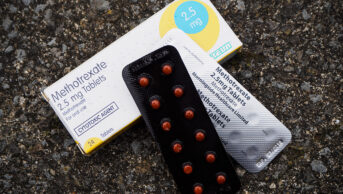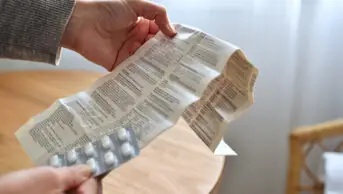
Shutterstock.com
Including pharmacists on hospital ward rounds has the potential for significant cost savings as well as improved medication safety, according to results of a study shared at the Clinical Pharmacy Congress 2025.
The results were published in a poster at the conference, which was held in London on 9 and 10 May 2025.
During the study period, two prescribing pharmacists joined consultants for their daily rounds on a diabetes and endocrinology ward, reviewing medication via an electronic prescription system.
The study was conducted over eight weeks between September and November 2023 at a district general hospital in North West London. In total, pharmacists spent 59 hours on the wards during a total of 23 ward rounds. In that time, they completed 276 patient reviews and made 297 interventions.
Of the pharmacist interventions, 286 (96%) were accepted, with the most common interventions including stopping medication because the course was completed; prescriptions for new indications; medicines reconciliation; and dose changes.
Results also showed a 100% reduction in the number of reported medication incidents between September and December 2023.
The authors also reported that there were no medication-related errors reported across 1,951 pharmacist-led prescription activities.
Cost analysis highlighted “an estimated net saving of £68,985 from deprescribing inappropriate medications”, the poster said.
“This study showed that £2.08 was saved for every £1 spent on pharmacist ward round time,” it added.
Study author Suhrab Sayfi, a senior specialist pharmacist in diabetes and endocrinology at London North West University Healthcare NHS Trust, said: “The results showing a high number of interventions were in line with what we expected, but I was surprised to see that deprescribing was our most common intervention.
“Looking into this in a bit more depth, I was surprised to see that we were deprescribing about £189 worth of medicines per day, based on if they were continued for another 24 hours. This is for drugs started during the admission; for example, antibiotics that had completed their course but not been stopped, electrolytes, rationalising treatments.
“We have now implemented this on our cardiology and respiratory wards at Northwick Park Hospital.”
Commenting on the study, Claire Anderson, president of the Royal Pharmaceutical Society, said: “This research highlights the important role of pharmacists as part of multidisciplinary teams in supporting safe and effective use of medicines, especially for patients managing complex medication routines, such as those with diabetes.
“Their involvement leads to safer prescribing decisions, effective deprescribing and better medicines reconciliation, all of which benefit patients and the NHS.
“We support expanding this collaborative approach across healthcare settings and ensuring pharmacy teams are properly resourced to lead on medicines reviews. Pharmacists’ expertise is essential to tackling polypharmacy and reducing avoidable harm.”
You may also be interested in

GPhC writes to pharmacy teams after methotrexate dispensed with instruction to take once daily

Medicines commission calls for greater clarity on risk of suicidal behaviour from antidepressants
